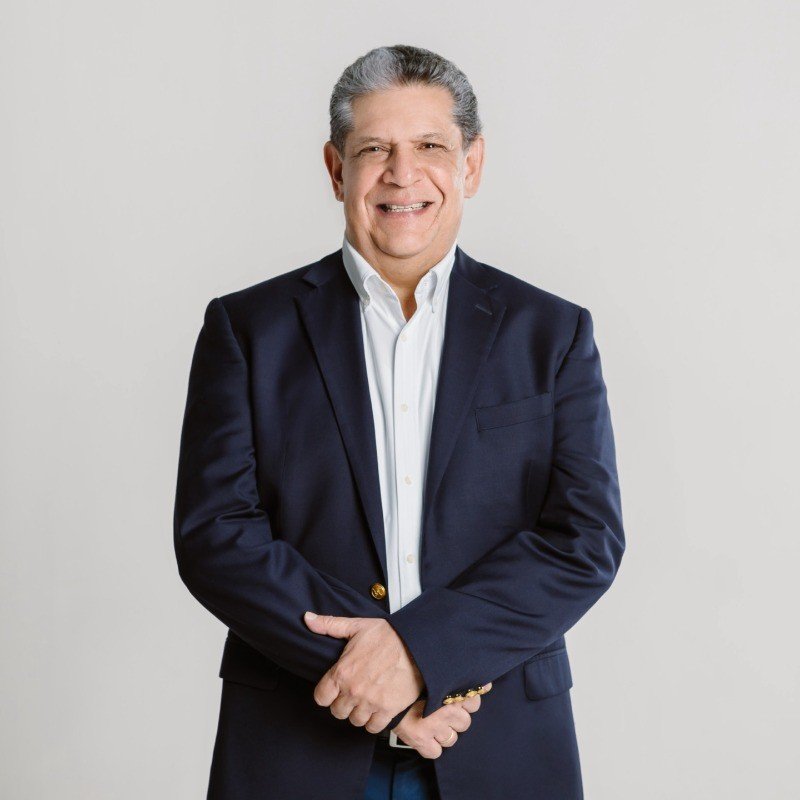Network Insights: Sustainability Isn’t About Taking a Stance — It’s About Reducing Carbon Emissions
At GNFZ, we are grateful to partner with champions of decarbonization and sustainability who understand the barriers that organizations and projects face in achieving their full potential — and more importantly, know how to effectively remove and overcome them.
Which is why we’re excited to share insights from an interview with Francisco Sifontes, Rector and Academic Director at the Key Institute in El Salvador and GNFZ Advisor, who is an established sustainability and business transformation leader in Central America with more than 30 years of experience and accomplishments in the engineering and manufacturing sectors.
Monthly network insights are shared first with our email list. Subscribe today for exclusive access.
Rector and Academic Director at the Key Institute in El Salvador, Francisco Sifontes
GNFZ: What role do you play in your company and what does your company do?
Francisco Sifontes: Currently, I am the Rector and Academic Director for Instituto Kriete de Ingeniería y Ciencias (Key Institute), a newly founded engineering university established by Roberto Kriete, a renowned international businessman in the aviation industry.
Since 2022, I have led the creation of this future-ready engineering university located in El Salvador, Central América. Alongside Roberto Kriete, Tecnológico de Monterrey and Olin College of Engineering were hired to design the university’s blueprint. The project was completed in a record time of 16 months — starting in November 2023 and finishing in February 2025 — and opened its doors to 68 of the brightest students from El Salvador in March 2025.
The university will align industry needs with the latest pedagogies based on interpersonal skills, project-based learning labs and artificial intelligence for all majors. Its holistic curriculum includes sustainability, health and wellbeing frameworks, English, project management and financial education for evaluating real-world projects.
Sustainability will be a key component across many education programs. In addition, Key Institute’s continuous education department will develop educational programs related to sustainability and consultancy to the central American industries.
I am honored to be part of this transformational project sponsored by Roberto Kriete, his family and an exceptional staff team.
Why is achieving net zero in the building sector important to you?
In the same way that lean manufacturing is always seeking to increase productivity at the lowest cost, in the built environment, designers should be seeking the most efficient energy, environmental and human wellbeing performance. The optimal performance result, of course, is net zero buildings.
The traditional linear design, construction and operations methodologies are obsolete; nonetheless, they are still the norm. Most industrial markets have found a way to accelerate green energy and digitalization domains at scale. But it is not the case for the built environment, where every single building, house, warehouse, shopping mall, stadium, park, road, multifamily apartment, cinema, theater, restaurant, etc., must be designed and built in the traditional linear, from-scratch way.
The building industry is at a very early stage of modernization, digitalization, and becoming environmentally friendly.
What is your definition of leadership?
Leadership is, first of all, a personal decision. And it is a lifelong journey that can be divided into two distinct phases.
In phase one, a leader most foster their character while maintaining a profound expertise in their field. While this phase could take many years to master, they must inspire trust.
The second phase is to promote and champion the development of your team and fellow members — to serve others.
What advice do you have for organizations that may be intimidated by the cost of sustainability or by all the options that are out there?
I always try to describe the “high cost” of sustainability like this:
Yes, designing and constructing based on sustainability standards can be expensive — if:
Your company sticks to traditional linear design and construction instead of adopting Integrated Project Delivery (IPD) methods.
You don’t invest in training or building sustainability expertise internally.
You wait until too lake in the process to ask the architectural firm to include sustainable categories into their design.
You assign sustainability certification to a single expert in the company rather than across teams.
You decide to “go sustainable” once the traditional designs have already been approved without integrating a clear sustainability strategy.
You don’t conduct a Life Cycle Cost analysis for every system of the building.
You don’t establish a multidisciplinary team to lead the design and construction of the building.
However, if you follow best practices — especially the Integrated Design Process — the project is usually cheaper overall, operates more efficiently and has a lower carbon footprint. In fact, a net zero building is often the most cost-effective building you can construct.
How do you think you will collaborate with GNFZ to bring value to a larger ecosystem of businesses to achieve net zero?
There is a mindset shift that we need to embrace, with three key actions to take.
The shift:
Moving your company into sustainable strategies is not a fight against oil, plastics or business models; rather, it is about driving smart, efficient, and profitable growth. Sustainability isn’t about taking a stance — it’s about reducing carbon emissions, even by just 5%. Once you see the savings and efficiency that come with that, your company will naturally want to keep going toward zero.
The three actions:
Invest in training and professional development within the company, focused on the economic trends shaping sustainability — just as many are training their teams in AI.
Find the best decarbonization roadmap to fit your core business, whether you offer products or services.
Adopt international standards, digital technologies and best practices to advance without interrupting your day-to-day duties — the standards must fit naturally into your core business.
What do you value most about GNFZ’s net zero certification and platform, and how does it benefit your clients?
The CEO, founder, advisors, staff and international partners of GNFZ are truly the most experienced champions in the sustainability space, demonstrating a vast number of real-world projects. Their platform is built on practical, proven experience.


